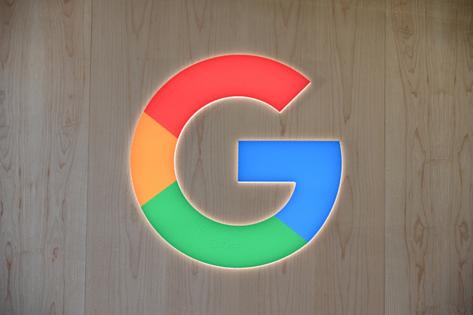Alphabet sales beat estimates on Google search advertising
Published in Business News
Google parent Alphabet Inc. reported first-quarter revenue and profit that exceeded analysts’ expectations, buoyed by continued strength in its search advertising business.
First-quarter sales, excluding partner payouts, were $76.5 billion, the company said Thursday in a statement. Analysts had expected $75.4 billion on average, according to data compiled by Bloomberg. Net income was $2.81 per share, compared with Wall Street’s estimate of $2.01.
The shares, which have declined 16% so far this year, rose more than 5% in extended trading following the report.
Alphabet needs to ensure momentum in its internet search advertising and cloud businesses in order to justify its heightened investment in the artificial intelligence race. Competition is prompting the company and its rivals to spend heavily on infrastructure, research and talent. While Google benefits from AI startups spending on its cloud and business tools, it’s also racing to present an answer to popular conversational AI chatbots, which consumers are beginning to think of as an alternative to using Google Search.
Google’s beginning of the answer to that threat — its “AI Overviews” and “AI Mode” in search, in which summarized responses are drafted by generative AI and highlighted ahead of Google’s web links — have seen mixed success. Meanwhile, Google’s AI changes to search have decimated traffic to independent websites across the open web.
Google Cloud brought in operating profit of $2.18 billion, beating analysts’ estimates for $1.94 billion despite slightly missing expectations on sales. The results indicate that Google may be ekeing out more profits from Cloud even as sales slow.
The cloud unit is so far the clearest indicator of how the AI boom is contributing to the company’s sales, as startups that require more computing power for their work become customers. Though Google Cloud still lags in third place behind Amazon.com Inc. and Microsoft Corp.’s offerings, it’s one of Alphabet’s most important growth areas. For a second quarter in a row, the company had more customer demand than it had data center capacity for, according to Chief Financial Officer Anat Ashkenazi.
That’s why Alphabet remains heavily invested in AI, boosting its spending on servers and data centers. Capital expenditures were $17.2 billion in the first quarter, slightly higher than analysts’ expectations for $17.1 billion.
Search advertising generated $50.7 billion in sales. That compared with the average analyst projection for $50.3 billion. The unit remains the core engine of Google’s wider advertising business, and saw traction with the insurance, retail, healthcare and travel industries, executives said on a call with investors after the earnings report.
“I half expected to see some dip in retailer advertiser spend due to economic uncertainty, but clearly it remained pretty solid,” Yory Wurmser, an analyst with Emarketer, said in an email.
That business is under threat of a breakup after federal judges ruled that the company is maintaining illegal monopolies in both search and some ad technology. On Monday in Washington, Judge Amit Mehta began overseeing a three-week hearing to determine remedies for restoring competition in online search.
Google’s video-streaming site YouTube, which turned 20 years old in February, posted $8.92 billion in revenue, a slight miss compared to analysts’ estimates of $8.94 billion. The unit, which has made a big push into podcasting, recently announced that a billion people a month watch podcasts on its platform – outpacing both Spotify Technology SA and Apple Inc. in the category. YouTube, which gets most of its revenue from advertising, also saw growth in subscriptions, executives said on the earnings call.
Alphabet’s board authorized a $70 billion share buyback and boosted its dividend by 5%, to 21 cents a share.
©2025 Bloomberg L.P. Visit bloomberg.com. Distributed by Tribune Content Agency, LLC.












Comments